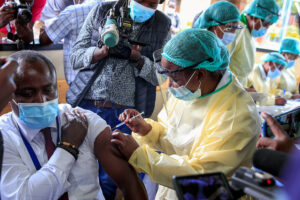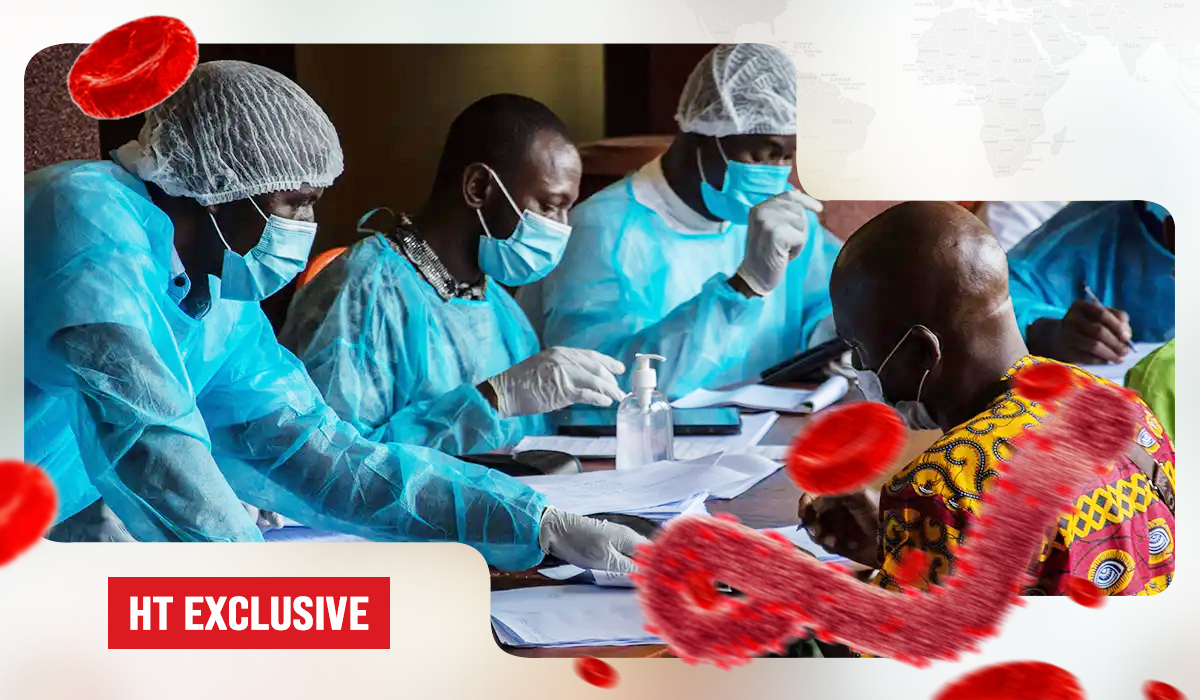By Ere-ebi Agedah Imisi
Threat of viral diseases in Africa is an ongoing battle, from the deadly Ebola virus to the persistent threat of malaria, Africa’s health systems have historically faced immense challenges. But now, a new contender is looming on the horizon, raising concerns across the continent. It’s the Marburg virus.
Recent cases in Rwanda have sparked urgent action, drawing comparisons to Ebola, as the two share a common family of viruses. With several confirmed cases, rising fatalities, and increasing global attention, it is essential to ask: how worried should Africa act with the rise of the Marburg virus? What does this mean for healthcare workers, governments, and the general population?
A Growing Threat
Last Saturday, Africannews reported that Rwanda has been rattled by the confirmation of over 20 Marburg virus cases, with multiple deaths confirmed. The World Health Organization (WHO) immediately mobilized, sending supplies from Kenya to assist in containing the outbreak. Rwanda’s response, though swift, is part of a larger narrative of how African nations respond to sudden viral threats.
Marburg virus is not new, but it is unfamiliar to many. First identified in 1967 in Germany after workers were exposed to infected monkeys imported from Uganda, the virus has since caused sporadic outbreaks in Africa. Its symptoms, including severe hemorrhagic fever, high fever, vomiting, diarrhea, and internal bleeding, make it a formidable opponent.
With a fatality rate that can reach up to 88%, Marburg can be just as deadly as Ebola, to which it is closely related. The virus is spread primarily through contact with the bodily fluids of infected people, including blood, saliva, sweat, and excretions, as well as through contaminated materials like bedding or clothing.
Given these alarming characteristics, the Marburg virus has naturally raised concerns, but how justified is this fear, and what should Africa do in response?
Real Cases, Real Lives
Behind the statistics of infections and fatalities lie real people. In Rwanda’s districts, families are grieving their loved ones lost to the virus. A mother of three, known locally as Marie, lost her husband to Marburg after he initially showed symptoms of what seemed to be a simple fever. Her community rallied around her, offering condolences, but it was too late as her husband had already unknowingly infected several others, including a neighbor who had helped carry him to the clinic. The healthcare system, though well-prepared for many emergencies, found itself racing to respond to a virus that it hadn’t anticipated would spread so quickly.
Healthcare workers, the frontline soldiers in the fight against this invisible enemy, face the brunt of the danger. Recall that in Liberia, during the Ebola epidemic, nurses like Alice Johnson risked their lives every day to care for the infected, often with inadequate protective gear. Today, healthcare workers in Rwanda, Tanzania, and other affected regions are recalling these painful memories as they confront Marburg. Although there have been advances in equipment and protocol, the emotional and physical toll is enormous. These workers risk not just their health, but also the lives of their families, as the virus can be unknowingly carried home.
“I lost a colleague to Ebola years ago, and the fear is back with Marburg, we are better prepared now, but it’s never easy. One mistake, one breach in protocol, and we could lose more people,” says Dr. James Nkurunziza, a Rwandan healthcare worker.
Dr. Nkurunziza’s story reflects the human cost of outbreaks like Marburg. Every case is not just a number but a person, a family member, or a caregiver. The risk extends beyond those infected to the healthcare systems themselves, which are already stretched thin from the COVID-19 pandemic and other health crises.
The Healthcare Challenge
Healthcare workers are not only battling the virus, they are also combating fear, misinformation, and stigma. When the Ebola outbreak peaked, entire villages shunned survivors or those suspected of being infected. Today, with the Marburg virus, the stigma continues to plague communities. Some people refuse to seek help due to fear of being ostracized or placed in isolation wards, creating a cycle of hidden infections that could rapidly spiral out of control.

The experience of healthcare workers in Uganda, where a 2017 outbreak of Marburg killed several people, sheds light on the importance of early detection, isolation, and community engagement. During that outbreak, nurses and doctors had to fight not just the disease, but also public mistrust. Uganda’s health authorities ultimately contained the virus by combining swift medical interventions with community outreach efforts, ensuring that people knew the dangers of the virus and understood why certain measures, such as quarantines are necessary.
Learning from these past outbreaks, Rwanda has adopted similar measures, especially with the support of the WHO. Dozens of people who came into contact with the infected are now being closely monitored, and efforts are being ramped up to track down any potential new cases before they spread further. Cross-border measures are also being implemented to contain the virus within the country’s borders and prevent a wider African epidemic.
Yet the effectiveness of these efforts hinges on the ability of local governments and health systems to sustain them. African nations have improved their capacity to respond to health crises, but many still lack the resources and infrastructure needed to handle prolonged outbreaks of such a deadly virus.
What Can Governments Do?
The responsibility to curb the spread of Marburg lies not just with health workers, but also with governments. There are several key areas where urgent action is needed:

Early Detection and Response: African leaders need to invest in early detection systems that can identify viral outbreaks before they escalate. This includes robust surveillance systems, especially in rural areas, where outbreaks often begin but go unnoticed for days or weeks.
Equipping Healthcare Workers: Medical personnel need sufficient protective equipment, from gloves and face shields to full-body hazmat suits, to protect themselves from infection. African countries must partner with global health bodies like WHO to ensure these resources are available and accessible.
Public Awareness Campaigns: The fear and stigma surrounding viruses like Marburg can be as dangerous as the virus itself. Governments must implement education campaigns that inform the public about the virus, how it spreads, and how to protect oneself without inciting panic. Uganda’s success in containing its Marburg outbreak through community engagement shows the importance of transparent communication.
Cross-Border Cooperation: In our interconnected world, the spread of diseases does not respect borders. Marburg cases in Rwanda could easily spread to neighboring countries, making regional cooperation essential. African governments should collaborate to monitor travelers and coordinate responses across borders.
Investment in Research and Vaccines: While there is no vaccine for Marburg yet, African governments must invest in scientific research and partner with international organizations to develop one. Recent advances in Ebola vaccines offer hope that a Marburg vaccine could be developed, providing crucial protection for those on the front lines of future outbreaks.
How Worried Should Africa Be?
How worried should Africa be with the rise of the Marburg virus? The answer lies not in fear, but in preparation and proactive action. The threat is real, Marburg is a deadly virus with the potential to cause widespread harm if left unchecked. But Africa has phased down similar threats before, and with the right steps, it can do so again.
Governments must act swiftly, ensuring healthcare workers are protected and equipped, the public is informed, and surveillance systems are strengthened. The international community, including organizations like WHO, must continue to provide support, both in terms of medical supplies and expertise.
Ultimately, the rise of the Marburg virus is not just a test of Africa’s health systems, it is a test of global solidarity, and we must all be vigilant, cooperative, and compassionate. The question is not if Africa should worry, but how Africa and the world will respond. The world cannot afford to ignore the Marburg virus.


































